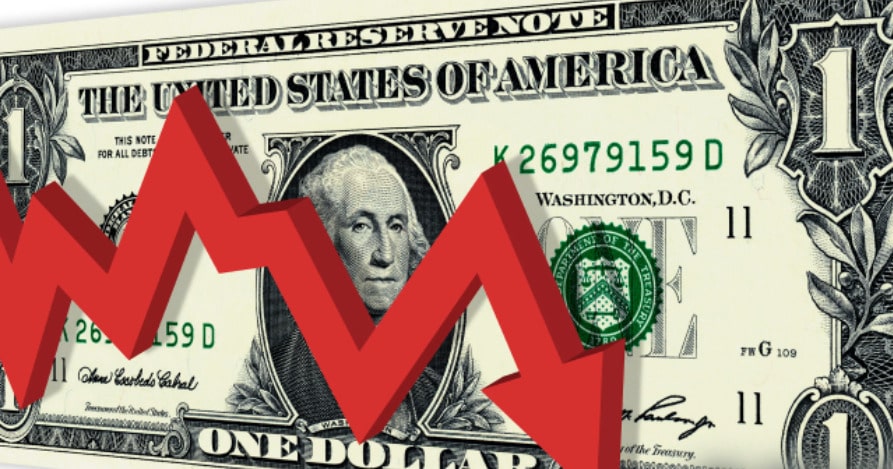
Deniz ÜNVER
Independent Researcher
After World War II, the United States dollar has been regarded as the foundation of the global monetary system[1]. It is an instrument as well as a symbol American hegemony, since all central banks hold dollars in reserve as the global trade is conducted through this currency[2]. The US dollar’s hegemonic role was started with the Bretton Woods Agreement of 1944, which built today’s liberal economic order and its institutions such as IMF as well as pegged an ounce of gold to 35 dollars[3]. In a sense, it can be said that the Bretton Woods Agreement is a significant turning point for the international political economy. The dollar’s role as hegemonic currency and the US’ role as the global hegemon was further consolidated with the consensus of Saudi Arabia and Gulf countries on using dollars for oil trade in 1974[4]. Today, the dollar accounts for 60 percent of global reserves[5], which explains the influence of Washington in the global financial order.
As the hegemon of the liberal economic order, the US can employ its monetary power and use its currency as a form of coercion with the power of dollar’s reserve currency status. This provides the US a great amount of power and influence in global politics[6]. There are numerous examples of the US realizing its political interests through its monetary superiority. For instance, the imposition of sanctions on Iran is an example of the US using its hegemonic power or using global economic networks[7] to benefit from the system. In 1971, when US President Richard Nixon allowed the fluctuation of the dollar, it again benefited US since the dollar had been the most popular currency and US did not need any gold while countries like Japan and Germany had to live through revenue export decline due to the weakness of their currencies[8]. Moreover, the recent example of US President Joe Biden imposing sanctions on Russia for the war in Ukraine is an outstanding example demonstrations this situation.
For years, the world’s huge demand for dollars have created cheap financing for US investment abroad[9]. Accordingly, it can be said that the dollar’s central role has assisted the US in strengthening not only its economic interests but also military to impose its interests around the world. Military interventions of the US to Middle East can be explained by this phenomena.
However, as the discussion on multipolarity and great power struggle emerged, especially with the rise of China, it has started to be a matter of discussion as to whether the US dollar will lose its global reserve status.
A threat to the dollar’s foundation may have serious consequences both for the US and the liberal economic order[10]. The loss of the dollar’s reserve currency would result in an irreversible decrease in the standard of living of US citizens in terms of purchasing power and income while causing a repositioning of global economic and financial order[11]. Nevertheless, the US sanctions against Russia as a response to the war in Ukraine may speed the de-dollarization process at the same time as undermining US hegemony.
It was stated by Russia that all its energy and commodity exports will be done with rubles instead of dollars to circumvent the sanctions imposed against Russia for the invasion of Ukraine in an effort to create difficulty for the West[12]. This attempt by Russia was, at first, started as trading in rubles with “unfriendly countries”[13], and then, it turned out that Moscow is aiming to conduct all of its trade in rubles.
Following this declaration, Russia’s attempt has created an emergency signal for Western economies, especially for Germany, which stands as the biggest economy in Europe. According to estimations, Russia provided 55 percent of the gas needs of Germany last year[14] and this move by Moscow can create a supply crisis in Germany[15]. Moscow provides several billion dollars’ worth of gas to Europe annually. For this reason, Europe’s currency has a significant place in Gazprom exports with accounting for 58 percent while dollar and sterling accounts for, 39 and 8 percent respectively[16]. Europe, which provides 40 percent of its gas consumption by Russian exports with euros, Russia’s State controlled Gazprom does not have an intention to remake contracts[17]. Thus, it is now speculated that Russia has a plan to provide all of its exports on rubles to make a tougher move against the sanctions[18]. Speaker of Russian government, Dimitri Peskov, explained that Russia will give time for its customers to switch to rubles[19]. Peskov also claimed that the dollar’s status as the hegemonic currency has already been hit[20].
However, it is estimated that Russia has few safe zones for saving its earnings from oil and gas trade after US, Europe and Japan captured its 630 billion dollars just after the beginning of the war in Ukraine[21]. Thus, the assets of the wealthy members of the Russian Army were frozen in late February[22]. Then, many Russian banks were removed from SWIFT and many multinational brands and firms, such as Toyota, Apple and McDonalds ended operations in Russia[23]. In this regard, payment in rubles means that Russia can easily remove its currency from circulation while fixing its currency’s exchange rate and preventing the inflationary pressure which was created by currency devaluation[24]. In addition to this, the crucial aim of Russia on this regard can be summarized as bolstering rubles as well as undermining the hegemony of the dollar in the long run[25].
It must be remembered that it is not the first time Russia has been challenged by economic sanctions. After its annexation of Crimea in 2014, Moscow began to reduce its dollar holdings[26]. This attempt of Russia was commented as dollar resentment by many[27]. Indeed, major Russian energy firms ended trading with dollars[28]. For this reason, most of its frozen account abroad due to the Ukrainian war was held in euros and other currencies[29]. Yet, the war revealed that the precautions taken by Russia were not enough to properly protect its economy, according to the experts[30].
Despite such attempts, Russia needs China’s help to achieve de-dollarization and trading with local currencies. This assistance has already been given to Russia by China. In fact, the two countries have attempted numerous times to bypass the US dollar such as trying to create a system that helps trading with local currencies and making swap deals[31]. Further, Russia has already started to receive many of its payments from China with euros33 even though dollar is the most traded currency of Moscow’s payments with China. The Sino-Russian partnership was, also, confirmed by Chinese Foreign Minister, Wang Yi, “China is willing to work with Russia to take China-Russia ties to a higher level in a new era under the guidance of the consensus reached by the heads of state.”[32] Thus, it was stressed by the Russian Foreign Minister Sergey Lavrov that, the Sino- Russian ties is in the strongest level of its history[33].
In addition to this move by Russia, a significant attempt that can challenge the reserve currency status of the dollar has come from India when the Reserve Bank of India agreed with Russia on March 25 to invest the proceeds of its arms sales in local currencies[34]. It can be said that Russia’s 262 million dollars-worth account with Indian Reserve Bank is small[35]. Nevertheless, this development is important since India will receive the Russian weapons with rubles and at the same time, for Russia, it means bypassing Western sanctions[36].
Furthermore, another move that can challenge the dollar hegemony has come from Saudi Arabia, which has accepted to pay RMB to China in oil shipment trade[37]. This means that the Saudi Arabia needs to have large reserve of the Chinese currency[38]. After the war in Ukraine and seizure of Russian assets, Saudi authorities did not want to put their reserves in a place where the US or the EU Countries can seize them, and for this reason, they chose diversification by increasing the use of the yuan[39]. Indeed, among many other similar moves, this can be interpreted as a challenge for the dollar’s reserve currency status.
Despite such moves, is it possible to replace the dollar’s role as reserve currency with an another currency? As US Federal Reserve Chairman Jerome Powells stated, “It is possible to have more than one reserve currency[40].” Another comment came from an expert on central bank reserve management, Ousmere Mandeng as, “In the short and medium term, I think the efforts will increase significantly to find an alternative to the US dollar.”[41] Moreover, the IMF declared on March 15 that the war in Ukraine can radically change the international economic and geopolitical system, supply chain, payment networks and countries must re-analyze their reserve holdings[42].
Indeed, this has various explanations. One of them can be the fact that confidence for both the US government and the dollar has been lost after the 2008 crises when the US Federal Reserve System (the FED) massive inflation creation took place[43]. Indeed, for years, the reserve currency status of dollar gave the FED an opportunity to increase the supply of dollars which was backed by nothing[44]. Nevertheless, the inflation created by the FED, in fact, undermined the purchasing power of the dollar[45] due to the increasing prices of goods in services as well as emergence of economic bubbles[46]. Thus, the dollar inflation behaved as an invisible tax burden on middle and low class Americans whose income are naturally fixed on dollars[47]. Finally, the gold prices, which raised radically when inflation increased contrary to expectations, have fundamentally increased instead of decreasing due to increasing interest rates[48]. This constitutes a great geopolitical risk for the dollar.
On the other hand, there are contrary ideas suggesting that the dollar will not lose its reserve currency status. According to Salim Raza, a former officer from Central Bank of Pakistan, “It is not going to be easy to replace the US dollar as a reserve currency, which remains the dominant means to make payments in international trade[49].” This is mostly due to the liquidity problem. It is known that, 20 percent of the global GDP is the contribution of US[50] while the yuan does not even account for 3 percent of the global GDP[51]. If another reserve currency is found to replace the dollar, a new trading bloc is needed to create a sphere of influence for that currency.
As Jonathan Kirshner wrote, “As long as there are states and money, states will attempt to manipulate monetary relations to advance their political objectives.”[52] It seems that the future will be based more on currency competition when the recent developments are considered. Russia’s de-dollarization attempts, India and Saudi Arabia’s use of the yuan and the Sino-Russian cooperation justify this assessment. It can be seen that Beijing’s aim of assisting Moscow is based on Chinese hopes to build a yuan based economic order[53]. This can be accepted only as natural as states seek to increase the use of their currency globally to extend their political influence[54]. However, there are challenges standing for China, such as the liquidity problem. In spite of the challenges, Beijing’s growing web of political ties, its massive size and pull effect are China’s strong cards against the US[55]. Despite the challenges against and doubts concerning the dollar, it would not be logical to claim that the recent developments or the sanctions on Russia have directly created a “Bretton Woods moment”, which can abruptly change the whole international economic system. Yet, it would be rational to claim that the war on Ukraine has been contributing to the de-dollarization process, which gradually sabotages the reserve currency status of the dollar and the US hegemony.
*Picture: https://workers.today/is-u-s-dollar-hegemony-ending/
[1] Eric Helleiner (2014) The Status Quo Crisis, New York: Oxford University Press, p.67.
[2] Jason Peirce, “Will Joe Biden oversee the Collapse of the US Dollar?”, The Federalist, March 17, 2022, https://thefederalist.com/2022/03/17/will-joe-biden-oversee-the-collapse-of-the-u-s-dollar/
[3] Michael Day, “Russia and China are out to undermine the US Dollar, and if they succeed it will change the world forever”, Inews, March 31, 2022, https://inews.co.uk/news/long-reads/russiachina-us-dollar-undermine-change-world-cryptocurrency-1548200
[4] David P. Goldman, “Dollar Reserve System Frays with India”, Asia Times, March 26, 2022, https://asiatimes.com/2022/03/dollar-reserve-system-frays-with-india-russia-currency-deals/
[5] Michael Day, “Russia and China are out to undermine the US Dollar, and if they succeed it will change the world forever”, Inews,
[6] Peirce, “Will Joe Biden oversee the Collapse of the US Dollar?”.
[7] Henry Farrell & Abraham Newman (2019) “Weaponized Interdependence: How Global Economic Networks Shape State Coercion”, International Security, p.42.
[8] Day, “Russia and China are out to undermine the US Dollar, and if they succeed it will change the world forever”.
[9] Ibid.
[10] Eric Helleiner (2014) The Status Quo Crisis, New York: Oxford University Press, p.67.
[11] Peirce, “Will Joe Biden oversee the Collapse of the US Dollar?”.
[12] Guy Faulconbridge, “All Russia’s Big Exports could soon be in Roubles”, Reuters, March 30, 2022, http://https://www.reuters.com/business/find-roubles-if-you-want-russian-oil-grain-or-metals-toplawmaker-says-2022-03-30/
[13] Goldman, “Dollar Reserve System Frays with India”.
[14] Ibid.
[15] Ibid.
[16] Ibid.
[17] Ibid.
[18] Ibid.
[19] Ibid.
[20] Ibid.
[21] Goldman, “Dollar Reserve System Frays with India”.
[22] Ibid.
[23] Saad Hasan, “Can Russia Sanctions Prompt Central Banks to Abondon the US Dollar?”, TRT World, March 15, 2022, https://www.trtworld.com/magazine/can-russia-sanctions-prompt-centralbanks-to-abandon-the-us-dollar-55526
[24] Goldman, “Dollar Reserve System Frays with India”.
[25] Faulconbridge, “All Russia’s Big Exports could soon be in Roubles”.
[26] Hasan, “Can Russia Sanctions Prompt Central Banks to Abondon the US Dollar?”.
[27] Day, “Russia and China are out to undermine the US Dollar, and if they succeed it will change the world forever”.
[28] Ibid.
[29] Hasan, “Can Russia Sanctions Prompt Central Banks to Abondon the US Dollar?”.
[30] Ibid.
[33] Ibid.
[34] Goldman, “Dollar Reserve System Frays with India”.
[35] Ibid.
[36] Ibid.
[37] Ibid
[38] Ibid
[39] Goldman, “Dollar Reserve System Frays with India”.
[42] Goldman, “Dollar Reserve System Frays with India”.
[43] Peirce, “Will Joe Biden oversee the Collapse of the US Dollar?”.
[44] Ibid.
[45] Ibid.
[46] Ibid.
[47] Ibid.
[48] Goldman, “Dollar Reserve System Frays with India”.
[49] Hasan, “Can Russia Sanctions Prompt Central Banks to Abandon the US Dollar?”.
[50] Ibid.
[51] Day, “Russia and China are out to undermine the US Dollar, and if they succeed it will change the world forever”.
[52] Jonathan Kirshner (2005), “Currency and Coercion in the 21st century”, European University Institute, EUI Working Papers, p.1, https://cadmus.eui.eu/bitstream/handle/1814/3362/05_13.pdf
[53] Day, “Russia and China are out to undermine the US Dollar, and if they succeed it will change the world forever”.
[54] Kirshner, “Currency and Coercion in the 21st century”, p.1.
[55] Cohen, Benjamin, 2018, "Currency Statecraft: Monetary Rivalry and Geopolitical Ambition", p.155.
© 2009-2025 Avrasya İncelemeleri Merkezi (AVİM) Tüm Hakları Saklıdır
Henüz Yorum Yapılmamış.
-
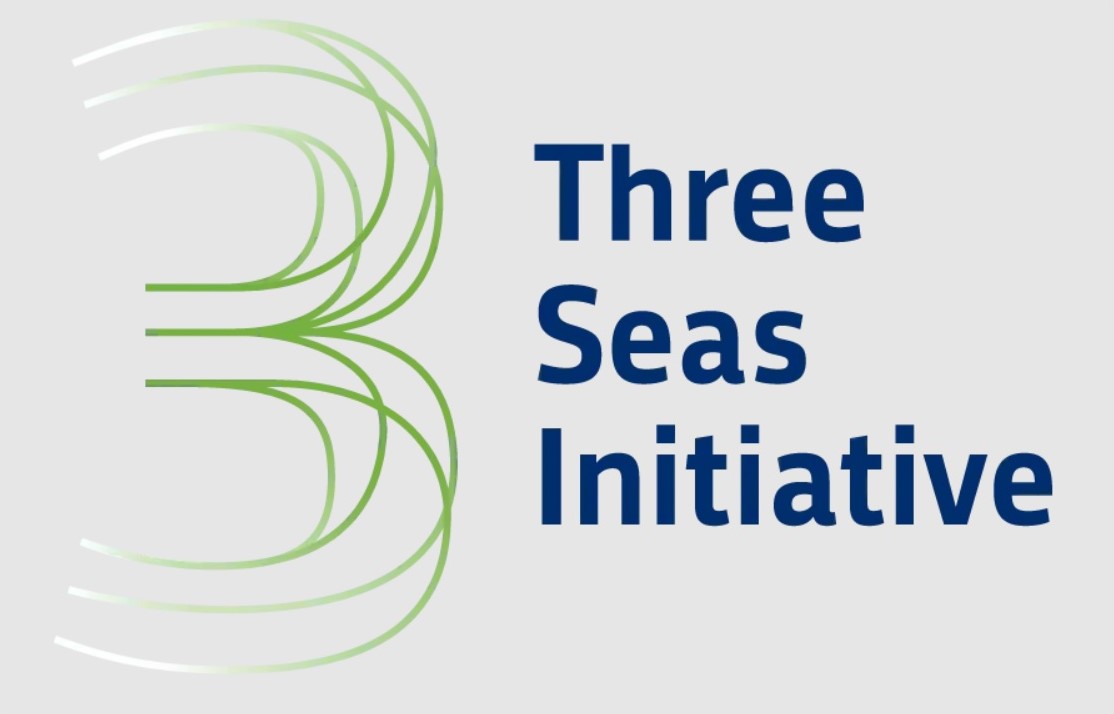 THE THREE SEAS INITIATIVE (3SI): AN ALTERNATIVE PROJECT TO PREVENT BRI?
THE THREE SEAS INITIATIVE (3SI): AN ALTERNATIVE PROJECT TO PREVENT BRI?
Deniz ÜNVER 31.05.2021 -
 CENTCOM, EUCOM AND US’ TÜRKİYE DILEMMA - 16.10.2022
CENTCOM, EUCOM AND US’ TÜRKİYE DILEMMA - 16.10.2022
Deniz ÜNVER 17.10.2022 -
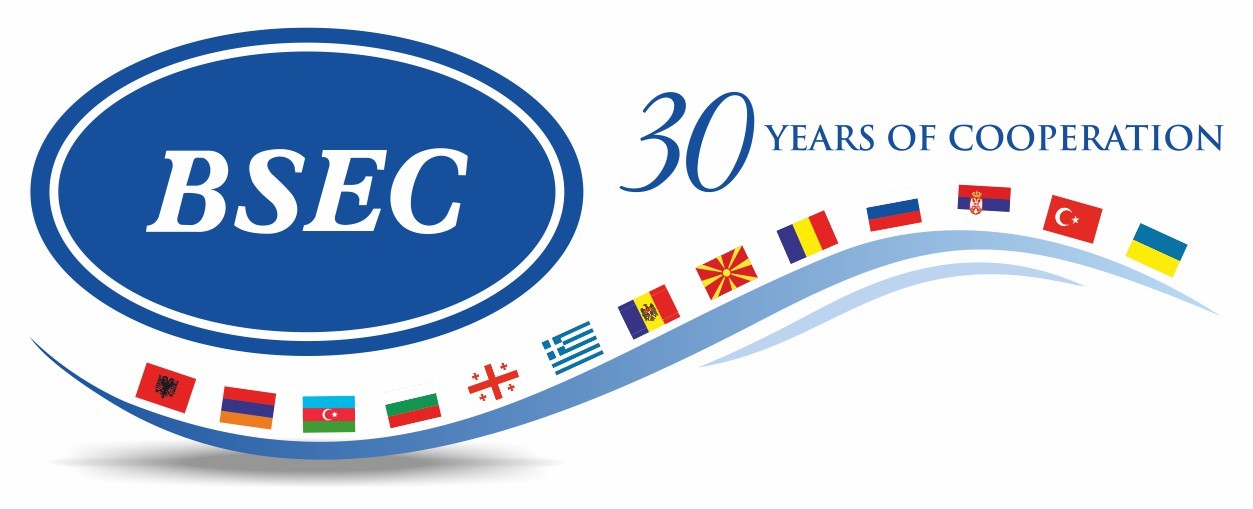 BLACK SEA SECURITY AND THE SIGNIFICANCE OF BSEC IN THE REGION - 31.10.2022
BLACK SEA SECURITY AND THE SIGNIFICANCE OF BSEC IN THE REGION - 31.10.2022
Deniz ÜNVER 31.10.2022 -
 ABD BORÇ TAVANI - 15.06.2023
ABD BORÇ TAVANI - 15.06.2023
Deniz ÜNVER 15.08.2023 -
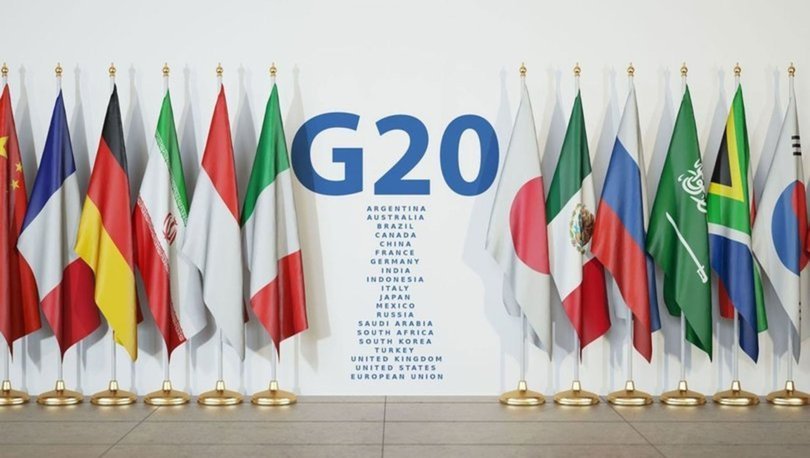 G20 AND THE MESSAGE IT CONVEYS - 29.11.2022
G20 AND THE MESSAGE IT CONVEYS - 29.11.2022
Deniz ÜNVER 29.11.2022
-
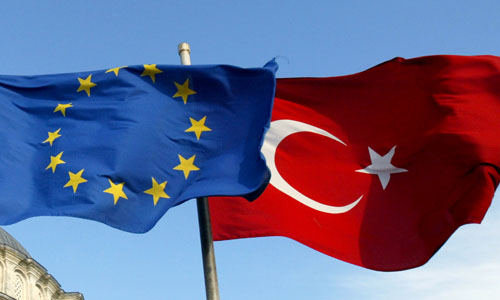 TURKEY HAS BEEN MALIGNED BY EUROPEAN PUBLIC OPINION - THE DAILY TELEGRAPH - 25.04.2018
TURKEY HAS BEEN MALIGNED BY EUROPEAN PUBLIC OPINION - THE DAILY TELEGRAPH - 25.04.2018
Ed WEST 25.04.2018 -
SEÇİMİ HRİSOSTOMOS KAZANDI
Ata ATUN 17.02.2013 -
 G20 AND THE MESSAGE IT CONVEYS - 29.11.2022
G20 AND THE MESSAGE IT CONVEYS - 29.11.2022
Deniz ÜNVER 29.11.2022 -
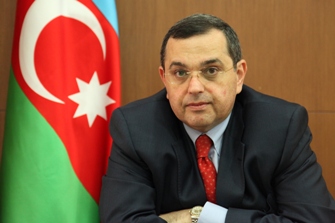 AZERBAYCAN-TÜRKİYE İLİŞKİLERİNİN 25. YILDÖNÜMÜ - AZERBAYCAN CUMHURİYETİ ANKARA BÜYÜKELÇİSİ FAİG BAGHİROV
AZERBAYCAN-TÜRKİYE İLİŞKİLERİNİN 25. YILDÖNÜMÜ - AZERBAYCAN CUMHURİYETİ ANKARA BÜYÜKELÇİSİ FAİG BAGHİROV
Faig BAGHIROV 14.11.2016 -
 ULUSLARARASI HOLOKOST KURBANLARINI ANMA GÜNÜ TÖRENİ’NDE ANKARA ÜNİVERSİTESİ REKTÖRÜ PROF. DR. ERKAN İBİŞ’İN YAPTIĞI KONUŞMA
ULUSLARARASI HOLOKOST KURBANLARINI ANMA GÜNÜ TÖRENİ’NDE ANKARA ÜNİVERSİTESİ REKTÖRÜ PROF. DR. ERKAN İBİŞ’İN YAPTIĞI KONUŞMA
Prof. Dr. Erkan İBİŞ 27.01.2017


